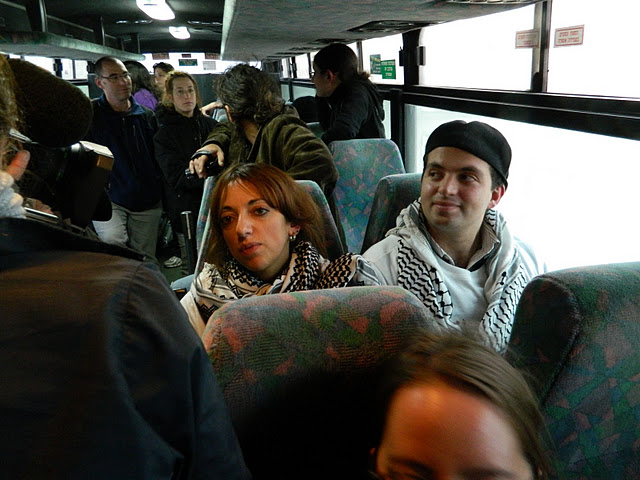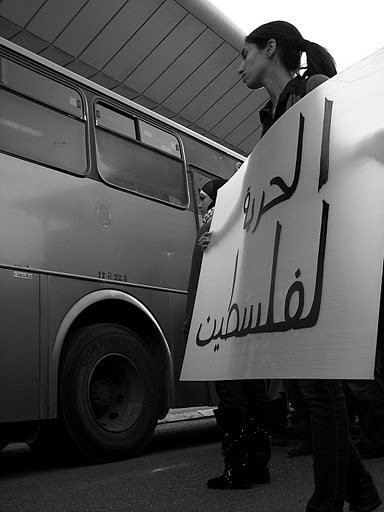Tag: Settlement
-
Freedom Rides to Jerusalem
by Anne Paq 17 November 2011 | Chroniques de Palestine On the 15th of November, Palestinian activists from the West Bank boarded a segregated Israeli bus used by Israeli settlers to Jerusalem in an attempt to highlight the regime of discrimination on freedom of movement in place in the Occupied Palestinian Territories and the fact…
-
A visual chronology of the Freedom Rides
by Dena Elian 16 November 2011 | Sixteen Minutes to Palestine On November 15, 2011, six Palestinian Freedom Riders boarded a settler-only bus traveling to occupied East Jerusalem to openly challenge Israel’s apartheid policies towards Palestinians and its minority populations. The following is a visual chronology of the events.
-
Freedom Riders: “I felt like I was witnessing history”
by Ben Lorber 15 November 2011 | International Solidarity Movement, West Bank Earlier today, 7 Palestinian activists were arrested as part of the Freedom Rides attempt to board segregated buses going from the West Bank into occupied East Jerusalem. Palestinians, Israelis and ISM activists waited at a bus stop outside the illegal settlement of Psagot,…


